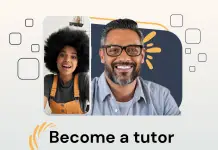Recently I have addressed the challenges faced by teachers of English. It is time to changethe perspective and deal with students of English. During my practice as an English teacher I have met a lot of different students, from young learners preparing for school tests to company employees anxious about presentations or negotiations to more mature students learning just for fun. Now I would like to collect some of the main problems they have to deal with in order to be successful and satisfied language learners.
The fluency-oriented
I can say that a lot depends on personality. Some people, for example, enjoy communicating, sharing their experiences. For them the main point is improving their fluency. Grammar is usually not their strength or focus. These people tend to learn through speaking and my job is normally to correct their mistakes and as these mistakes are corrected again and again, they gradually start using the right structures and forms and, as a result, their accuracy can improve. For them grammar exercises, drills are a nuisance. They sometimes lack the patience to do monotonous exercises about tenses. However, they still want to speak good English. So what can they do?
My view is that you should never force yourself to do something that is not compatible with your personality. If you do, you will just suffer and long-term you may give up learning English altogether. You should always do what is close to you. Things you can enjoy. So for students who like communicating, chatting this is exactly what they should do: talk. Talk a lot.
Go beyond your limits. Express everything you would in your first language. Go into philosophy. Abstract ideas. Or the details of your job. And while you are doing this try to use the vocabulary you have picked up recently from news articles, readings, listenings. Try to widen your active vocabulary this way. How to improve your grammar? I would say do not torture yourself with long exercises. Instead get a good listening material and listen to it twenty times. Stop it after every sentence. Repeat the sentences until you know them by heart. This way grammar structures will be stuck in your memory and you will use them naturally next time you speak. You could also learn written texts by heart. Or conversations. You may not be aware of the right grammar forms and rules but you will be able to use them correctly. And, at the same time, your fluency will improve dramatically. What else do you need?
The accuracy-oriented
On the other hand, there are people who want to learn all the grammar rules first and to be hundred percent accurate before they engage in a simple conversation. They are the accuracy-oriented students of English.
I find that this is partly a personality issue, partly a matter of culture and education in the specific country. In my country, Hungary, I believe the majority of people belong to this category. What can they do? I suppose that in this case the responsibility of the teacher is more significant.
Accuracy-oriented students of English need more encouragement, positive feedback and, undoubtedly, more effort from the teacher to make them speak. It is more suitable for them to have one-to-one lessons to have more opportunities to speak freely in a relaxing, familiar environment. As a matter of course if you belong to this type, you should do a lot of grammar exercises to get routine and more confidence as far as structures and forms are concerned. Multiple-choice tests, gap-fills are popular with these learners. However, you should never forget that the main point of language learning is communication. The goal is to make yourself understood as well as understand others. So do not worry too much. Spending some time in an English-speaking country could be the best option to break through the barriers and feel yourself more comfortable when speaking English.
No matter which group you belong to, the most important thing is to deal with the language on a daily basis. Study a little as often as you can. Put the favourite listening materials on your mobile. Smart phones can be turned into the best learning support devices. Watch films in English if you like the cinema. Read your most beloved books. Whatever you do will help. Revise regularly. It is so easy to forget what you have just learnt. And never ever give up or have a long break. Do little if you cannot do more. Every little thing matters. Learning a language is a life-long mission. So just enjoy the daily successes and worry less about your long-term goals.

























